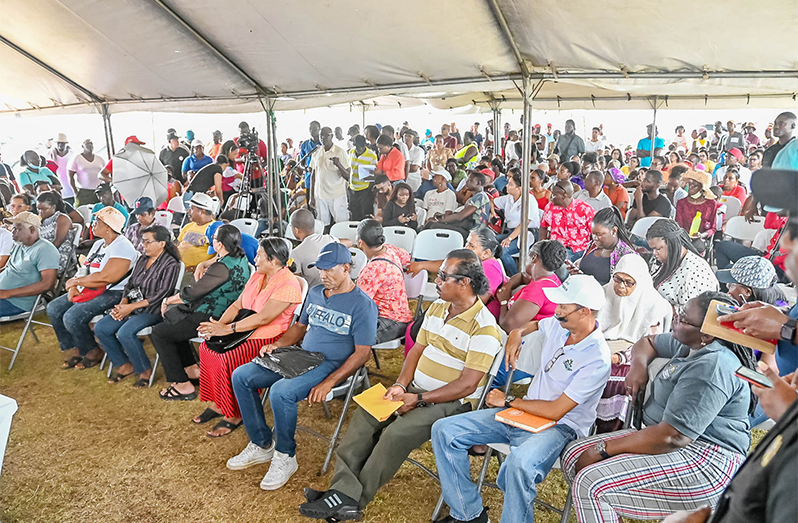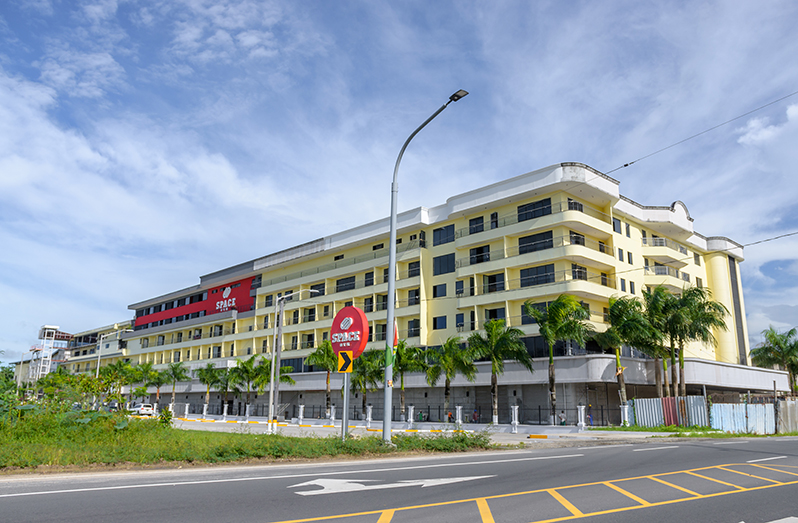Border Controversy…’We will not cower to coercion, intimidation, unilateral action’ – Guyana Chronicle
–President Ali tells UN, reaffirms Guyana’s commitment to peace, rule of law
IN defence of Guyana’s sovereignty on the world stage, President Dr. Mohamed Irfaan Ali told the 80th Session of the United Nations General Assembly (UNGA) that Venezuela’s continued threats of annexation are a direct assault on international law and the very principles that uphold global order.
“Guyana is a small and peaceful state; we have endured repeated threats and aggression from the Bolivarian Republic of Venezuela,” the Guyanese Head of State told hundreds of World leaders.
He reminded the Assembly that the border controversy is before the International Court of Justice (ICJ), which has twice reaffirmed its jurisdiction.
In 2023, the ICJ issued provisional measures ordering Venezuela to refrain from altering the status quo, however, “Venezuela persists with unilateral laws and threats of annexation, flagrantly violating international law, the UN Charter, and the very principles that sustain global order.”
On March 1, 2025, a Venezuelan Coast Guard ship had entered Guyana’s Exclusive Economic Zone (EEZ) near oil production equipment, specifically close to the FPSO PROSPERITY.
The Venezuelan vessel claimed the area was “disputed international waters” and made threatening radio communications to FPSOs operating there. This incursion was a serious breach of international law and has heightened regional tensions.
The incident drew widespread condemnation from the international community, including the Organization of American States (OAS), CARICOM, the United States, France, and other partners.
Those partners have reaffirmed their support for Guyana’s sovereignty, and condemned Venezuela’s actions as illegal and provocative. Specifically, the US has warned of consequences for Venezuela if provocations continue.
The President posed a sobering question to the international community, asking, “If the rights of a small state are to be trampled upon and legally binding orders ignored, what protection remains for any nation under international law?”
Despite the aggression, Ali was resolute that Guyana would continue to rely on the rule of law and international solidarity.
“For us, the principles of sovereignty, territorial integrity and non-interference are non-negotiable. We will not cower to coercion, intimidation or unilateral action. We thank our international partners and allies for their solidarity,” he affirmed.
Back in August, the ICJ) had notified the Government of Guyana that Venezuela had filed its rejoinder in the ongoing case concerning the validity of the Arbitral Award of October 3, 1899.
The filing, made on Monday, August 11, 2025, came within the deadline set by the court’s order of June 14, 2024. The rejoinder responds to Guyana’s reply, which was submitted in December 2024, and marked the conclusion of the written phase of the proceedings. This was welcomed by the Guyana government.
According to Guyana’s Ministry of Foreign Affairs and International Cooperation, the ICJ will, upon its return from summer recess, schedule oral hearings on the merits of the case.
These hearings will be followed by the court’s deliberations and the delivery of its final judgment. The decision, once issued, will be binding on both Guyana and Venezuela under international law.
The case before the ICJ concerns Venezuela’s contention that the 1899 Arbitral Award, which established the boundary between the two countries, is null and void. Guyana has maintained that the award is a valid and binding legal instrument that settled the border over a century ago.
In accordance with the Geneva Agreement, Guyana and Venezuela engaged in over two decades of Good Offices efforts on the border controversy under United Nations’ (UN) Secretaries-General auspices, in an attempt to find a peaceful diplomatic resolution.
However, on January 30, 2018, after the process failed to produce meaningful progress, the then UN Secretary-General concluded that the Good Offices initiative had run its course.
In accordance with Article IV (2) of the Geneva Agreement, he exercised his authority and selected judicial settlement by the ICJ as the next method of resolution.
Guyana, in accordance with the Secretary-General’s decision, filed an application with the ICJ on March 29, 2018, seeking a ruling on the validity of the 1899 Arbitral Award and the boundary it had established.
Venezuela, rather than co-operating, challenged the court’s jurisdiction, arguing that the Geneva Agreement did not allow for judicial proceedings.
After receiving extensive written submissions from both parties and holding oral hearings in June 2020, the court issued its judgment on jurisdiction on December 18, 2020.
The court found that “Guyana and Venezuela mutually conferred upon the Secretary-General the authority to choose the means of settlement of the controversy, and on 30th January, 2018, the Secretary-General exercised this authority by choosing judicial settlement before the Court.”
The court affirmed its jurisdiction to hear Guyana’s application regarding the validity of the Arbitral Award and the related issue of the definitive settlement of the land-boundary controversy between Guyana and Venezuela.



